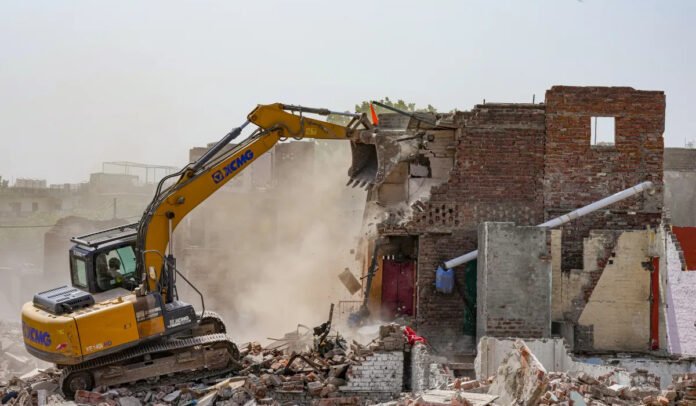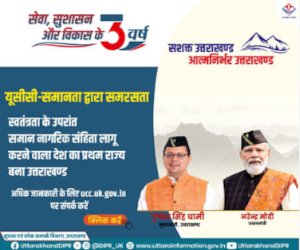The Uttarakhand government has released a new set of Standard Operating Procedures (SOPs) aimed at ensuring no home or structure is demolished arbitrarily by bulldozers. The detailed framework, issued in response to rising legal disputes over demolition drives, makes compliance with rules mandatory before any encroachment removal.
Our correspondent reports that the move comes after the Supreme Court’s order of November 13, 2024, which clarified the process to be followed in encroachment cases. The court highlighted that demolitions without due notice and proper procedure undermine the rule of law. The newly issued SOPs are designed to bring transparency and fairness into such actions.
According to the provisions, authorities must give a 15-day notice before any demolition is carried out. This notice is required to be sent by registered post and also pasted on the concerned property. A copy of the notice will be submitted to the district magistrate’s office. Our correspondent adds that each district will designate a nodal officer to oversee the procedure and ensure accountability.
The SOPs also provide a 15-day window for the property holder to remove the encroachment on their own. Within three months, a state-level online portal will be launched to record all related cases, notices, and appeals, giving citizens access to information. If an appeal is filed, the individual must be given a hearing, and the competent authority must clearly state the reasons for the decision.
Our correspondent reports that once a demolition order is passed, authorities must still allow the occupant another 15 days to voluntarily vacate or remove the encroachment. However, these rules will not apply where matters are already before a court or where a stay order is in place. Officials noted that this distinction ensures judicial oversight remains respected.
Another crucial requirement is that a detailed report must be prepared before any demolition. The report must carry signatures from at least two independent witnesses, or panchs. Our correspondent adds that the entire operation must be videographed, and names of officials and employees present at the site must be recorded. This measure is intended to prevent misuse of authority and provide an evidence trail for future scrutiny.
The SOP also places direct responsibility on officers in cases where demolitions are later found to be wrongful or illegal. If a structure is demolished despite a court’s stay order or without due process, the concerned officer will be held personally liable. Our correspondent reports that such officers would have to pay compensation to the affected party from their own funds and also bear the cost of reconstruction. This clause has been hailed as a strong deterrent against arbitrary actions.
Officials clarified that the SOP does not apply to encroachments on public spaces such as roads, footpaths, riverbanks, or railway lines, where immediate clearance may be required for safety or operational reasons. In such cases, earlier guidelines will continue to apply.
Legal experts have welcomed the step, saying it strikes a balance between the government’s duty to clear illegal encroachments and the rights of citizens. Civic groups believe the SOP will reduce conflict and restore trust in administrative actions. At the same time, they stressed the need for careful implementation and public awareness to ensure citizens understand their rights and responsibilities.
The Uttarakhand government’s decision reflects a broader trend across India, where demolition drives have faced criticism and legal challenges. With strict guidelines now in place, the state aims to ensure that bulldozers are not misused as a tool of arbitrary action but applied strictly under the law.



























